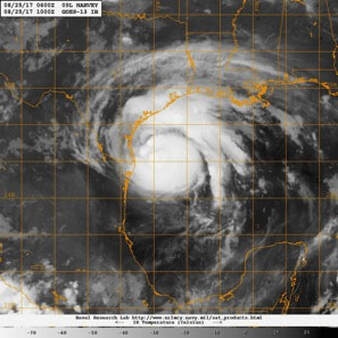|
by Casey Chan '23 Edited by Francesca Di Cristofano ‘23 We hear about natural disasters in the news every so often without giving them too much thought. But what many don’t realize is that as environmental justice is becoming a buzzword in politics, the relevance of these devastating events is on the rise too. According to the Environmental Protection Agency (EPA), “Environmental justice,” or the fair treatment of communities under environmental law, can only occur by the government providing “the same degree of protection from environmental and health hazards,” [1]. Perhaps unsurprisingly, natural disasters can be one of the best measures of socioeconomic disparity. Natural disasters affect groups differently, causing utter devastation for certain communities based on unfavorable locations or their inability to recover from physical destruction. Hurricanes are one of the most common natural disasters in the United States. Among these was Hurricane Harvey, a category 4 hurricane that made history in 2017 as one of the most costly and destructive US hurricanes since 1900. While Harvey mainly affected southern Texas, not everyone felt the negative effects of this disaster equally. In one study from the American Journal of Public Health, whether flooding was spread equally despite race, ethnicity, and socioeconomic status differences was analyzed [2]. The study focused on a 26,061 square kilometer area in Greater Houston metropolitan statistical area (MSA). A digital flooding map was used to determine the amount of flooding based on location. The researchers also rated the relative socioeconomic status of different places in the MSA using social variables from the American Community Survey. Among other variables were the proportion of the population aged 25 years or older with no high school education, the number of households with no vehicles available, and home ownership rate. The study suggested that areas with a higher proportion of non-Hispanic Blacks and Hispanics had a higher level of flooding [2]. Conversely, Asians, non-Hispanic whites, and other non-Hispanic groups experienced significantly lower levels of flooding. Poorer community residents also experienced more adverse health effects, more infrastructure damage, and a reduced ability to rebuild and rebound after a major disaster. Thus, a correlation is clearly established between socioeconomic status and one’s ability to recover from natural disasters. The implications of this study go beyond southeastern Texas, and politicians have begun to notice. At the CNN Climate Forum on September 5th, the majority of candidates directly addressed environmental justice. Pete Buttigieg proposed a “Douglass Plan” to combat racism [3]. Andrew Yang promoted his $1,000 per month basic income proposal to provide for people in difficult socioeconomic situations [3]. Senators Cory Booker and Kamala Harris specifically addressed environmental justice by integrating it into their overall climate change plans [3]. Despite the promise of positive change and willingness to address these issues, this activism is not perfect. As stated by S. Atyia Martin, a distinguished senior fellow at Northeastern University’s Global Resilience Institute, the issue of environmental justice has been oversimplified. The plans to help certain communities may only reinforce stereotypes of helplessness instead of truly remediating the systematic problem of inequality. Nonetheless, even though these politicians’ plans may be flawed, the obstacles placed between us and true environmental equality will continue to be on the forefront of social issues. Future goals will hopefully be refined in conjunction with those groups affected most by natural disasters. Works Cited:
[1] Environmental Justice. United States Environmental Protection Agency. [Internet]. 2019, Aug. 19 [Cited Oct. 20, 2019]. Available from: https://www.epa.gov/environmentaljustice [2] Chakraborty, J., Collins, T.W., Grineski, S.E. Exploring the Environmental Justice Implications of Hurricane Harvey Flooding in Greater Houston, Texas. American Journal of Public Health [Internet]. 2019 [Cited Oct. 20, 2019]; 109 (2), 244-250. DOI: https://doi.org/10.2105/AJPH.2018.304846 [3] Astor, M. Environmental Justice Was a Climate Forum Theme. Here’s Why. The New York Times [Internet]. 2019 Sept. 5 [Cited Oct. 20, 2019]. Available from: https://www.nytimes.com/2019/09/05/us/politics/environmental-justice-climate-town-hall.html.
0 Comments
Leave a Reply. |

